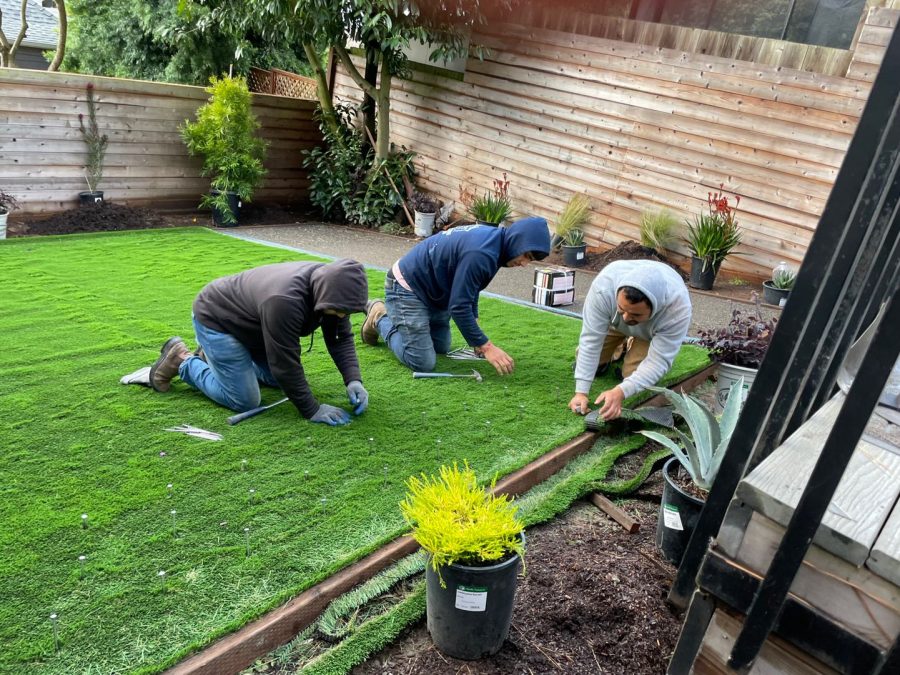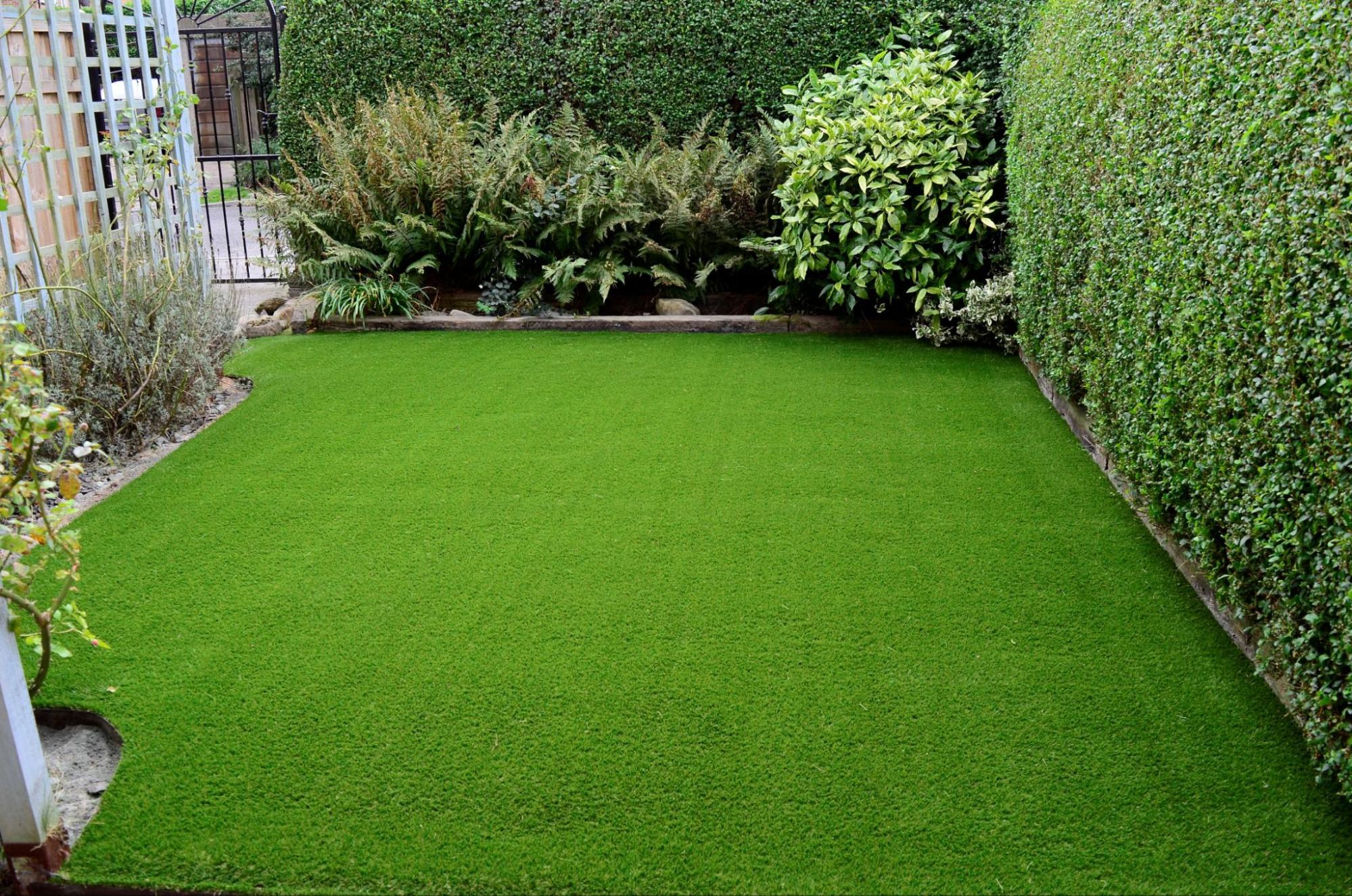Personalized Turf Installation Phoenix AZ for Residences, Businesses, and Play Areas
Personalized Turf Installation Phoenix AZ for Residences, Businesses, and Play Areas
Blog Article
Explore the Environmental Advantages of Opting for Synthetic Grass Solutions
The fostering of fabricated grass solutions provides a compelling possibility to resolve pushing ecological obstacles. By significantly minimizing water usage and lessening the application of harmful chemicals, these options not just promote lasting landscape design yet additionally protect regional environments. Furthermore, the reduced carbon impact associated with decreased maintenance tasks adds to a much more sustainable approach to land monitoring. The ramifications of these benefits expand past simple conservation efforts, raising questions concerning their lasting effect on habitat preservation and general environmental equilibrium. Exploring these dimensions exposes a complex interplay worth considering.
Water Conservation Conveniences
One of the most substantial advantages of artificial lawn is its capability to preserve water. In contrast, artificial turf does not require watering, significantly minimizing the general need for water resources.
By eliminating the requirement for regular watering, synthetic grass adds to sustainable landscape techniques and assists reduce the environmental impact of excessive water consumption. The conservation of water extends to the decrease of runoff, which can lead to soil erosion and waterway air pollution.
Additionally, the installment of synthetic grass enables municipalities and house owners to assign water resources more successfully, concentrating on essential usages such as alcohol consumption water and farming. The change in the direction of synthetic grass not only promotes responsible water usage however additionally aligns with broader ecological goals aimed at preserving natural resources.
As areas significantly focus on sustainability, the water preservation benefits of artificial lawn offer an engaging situation for its fostering in property and commercial landscaping projects.
Lowered Chemical Usage
The change to synthetic grass significantly lowers the reliance on chemical therapies typically made use of in natural turf maintenance. Traditional turf management typically involves the application of pesticides, herbicides, and fertilizers to promote growth and control bugs. These chemicals can posture threats to human health and wellness, local wild animals, and the environment, contributing to dirt and water contamination.
In contrast, synthetic lawn removes the need for these harmful substances. By minimizing the launch of artificial compounds into the ecological community, fabricated lawn promotes much healthier soil and water systems.
In addition, the lack of chemical overflow related to synthetic grass installations helps secure local rivers from contamination, sustaining marine life and keeping biodiversity. Phoenix turf companies. As communities progressively prioritize sustainable methods, deciding for artificial turf provides a practical solution that straightens with environmental conservation objectives. Via this shift, residential property owners can delight in rich eco-friendly spaces without endangering ecological wellness, paving the method for an extra sustainable future
Reduced Carbon Impact

In addition, the setup of synthetic grass can result in significant water preservation. Natural lawns require significant amounts of water for irrigation, which not just contributes to the carbon footprint related to Source water removal and therapy however likewise pressures regional water resources. On the other hand, artificial turf requires minimal maintenance, requiring no watering, therefore considerably decreasing water usage and its connected energy expenses.
Additionally, the durability of artificial grass adds to its decreased carbon influence. With a lifespan of approximately 15 years or more, the need for frequent substitutes is lessened, resulting in less waste and reduced energy intake in manufacturing and throwing away standard yard choices. On the whole, synthetic grass offers a lasting choice for environmentally mindful landscaping.
Environment Conservation
Environment conservation is a vital consideration in the dispute over landscape design selections, especially when contrasting synthetic grass to natural grass. Natural yard lawns usually require substantial maintenance, including the use of fertilizers, pesticides, and herbicides, which can adversely influence regional ecological communities. These chemicals can leach into the dirt and rivers, damaging native vegetation and fauna and disrupting local habitats.
Fabricated turf eliminates the requirement for dangerous chemicals, therefore safeguarding neighboring wildlife and Learn More preserving the stability of bordering ecological communities. The installation of man-made turf can lead to the conversion of previous turf areas right into more biodiverse landscapes, such as pollinator yards or indigenous plant locations, which can sustain neighborhood wild animals.
Inevitably, the shift to synthetic lawn not just preserves water and minimizes upkeep initiatives however also promotes a much more unified connection in between human activities and the natural environment, promoting environment conservation while doing so.
Long-Term Sustainability
Long-term sustainability is an essential factor in reviewing the benefits of synthetic grass over standard turf lawns. Among the most substantial advantages of synthetic grass is its durability; it can last up to 15-20 years with very little upkeep, whereas all-natural lawn calls for frequent reseeding and replacement. This longevity lowers the need for continuous resources, such as water, fertilizers, and chemicals, which are vital for maintaining a healthy and balanced turf yard.
Additionally, synthetic grass adds to a decrease in carbon emissions connected with grass care equipment. Conventional grass commonly require gas-powered lawn mowers, leaners, and blowers, all of which add to air pollution. Phoenix turf companies. On the other hand, synthetic grass gets rid of the need for such devices, promoting a cleaner atmosphere
Moreover, the production of synthetic grass significantly makes use of recycled products, boosting its sustainability account. As producers embrace environment-friendly practices, the ecological footprint of fabricated grass continues to lessen.

Final Thought
The adoption of fabricated turf options provides considerable ecological benefits, consisting of substantial water preservation, reduced dependence on hazardous chemicals, and a reduced carbon impact. Artificial turf aids in protecting natural habitats by decreasing land disturbance and promoting long-lasting sustainability through the use of long lasting products. Collectively, these variables highlight the potential of synthetic grass to contribute positively to ecological health and supply a viable choice to standard landscaping methods in a significantly resource-conscious world.
In comparison, man-made grass does not require watering, dramatically minimizing the overall demand for water resources. By minimizing the release of artificial compounds into the community, synthetic turf promotes much healthier soil and water systems.
Moreover, the setup of man-made lawn can result in significant water preservation. In comparison, fabricated turf requires very little maintenance, requiring no watering, consequently substantially lowering water usage and its associated power prices.

Report this page